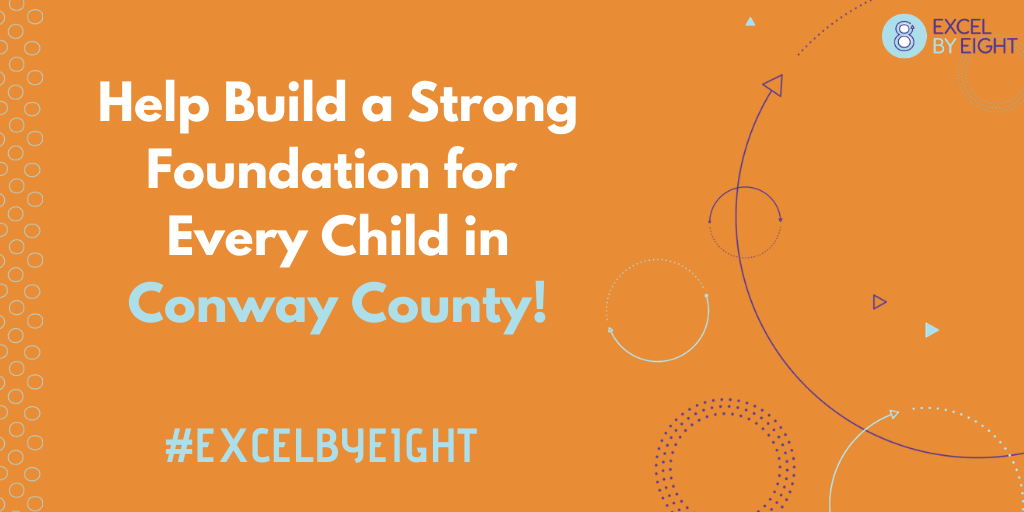
It’s often said the most meaningful change starts locally. At Excel by Eight (E8), we know that to be true. That’s why we are partnering with communities across the state to help all Arkansas children thrive. In Conway County, an E8 Community, parents, educators, health professionals and engaged residents have joined forces to identify gaps in their resource grid. With data in hand, the community is now developing plans to help improve local children’s health and education outcomes. Here to tell us more is Kaila Parker, parent, clinical dietitian and steering committee member:
How did you initially become engaged with Excel by Eight?
I participated in Conway County’s first data walk after I saw a posting about it in a foster parent resource group. While there, I had the opportunity to learn about E8 and share feedback
about key data points (e.g., high school graduation rates) in our community. As a primarily rural, low-income county with minimal local industry, I wasn’t surprised by some of the figures. Others, such as the current high school graduation rate, were more unexpected. Overall, it was an extremely informative process.
You serve on the E8 Conway County Steering Committee. Tell us more about this.
We recently finished compiling community input and Early Development Instrument data. This helped us identify top priorities for our county: food insecurity, children living in poverty, average annual wages, availability of child care and substance use disorder treatment. We’re currently using this information to develop strategies to help young children in our area.
You’ve worked closely with children throughout your career. How essential is reliable access to a strong resource grid to their overall health and education?
Whether it’s access to books or healthy food, every box of the resource grid is critical to whether children are able to succeed. Without high-quality child care, parents are less likely to be able to find good-paying jobs. In turn, they may struggle to put food on the table. It’s a ripple effect. We can’t pick one square of the grid to “fix.” We need a comprehensive solution that ensures families have access to all the resources they need.
What do you see as the most pressing issues or gaps in your local resource grid?
Food insecurity is an urgent concern for Conway County and the entire state. However, I believe the most overlooked issue for local families is the lack of access to high-quality child care. This should be available to all families—not just those who are able to pay out of pocket. These programs are instrumental to children’s long-term development and academic success.
What strengths in Conway County have you uncovered during this process?
Traditionally, schools tend to compete with each other. But that’s not the case in Conway County. Our districts have collaborated to provide free curricula and training to child care providers on introducing letters and reading to young children. I hope other communities in the state will consider how these types of unique partnerships can benefit all children.
How can community members (e.g., parents, local officials) support local E8 efforts?
As a society, we tend to be defensive or blame others when “problems” come to light. As we move forward with the E8 planning process, I hope we can be open to uncovering any potential issues and listening to each other to find solutions.
Have additional questions for Kaila? Share them on our Facebook page.
